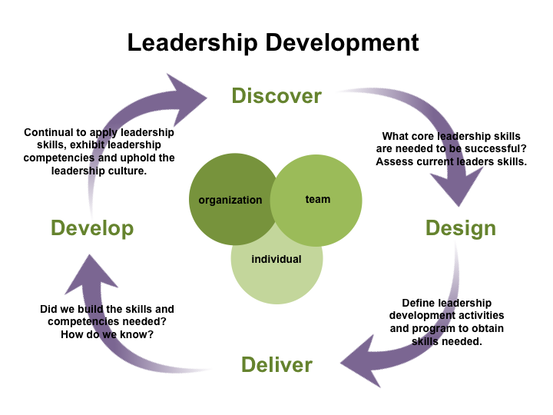Top 5 Reasons First-Time Managers Need Leadership Training
Table of Contents

- jaro education
- 12, December 2023
- 6:46 pm
Stepping into a managerial role for the first time can be an exhilarating yet challenging experience and leadership training through a leadership training program can really help with the process. As first-time managers, individuals often find themselves navigating new responsibilities, leading teams, and making critical decisions that can greatly impact their organization’s success. In such a pivotal position, the importance of effective leadership cannot be overstated.
In this blog, we will explore the top five reasons why leadership training and specifically leadership training programs, is essential for first-time managers. We will delve into the transformative benefits that leadership training provides, equipping new managers with the necessary skills, knowledge, and mindset to thrive in their roles and drive their teams towards success.
Whether you are a first-time manager seeking to enhance your leadership abilities or an organization looking to invest in the success of your managerial team, this blog will serve as a valuable resource to understand why leadership training is essential and how it can unlock the full potential of first-time managers.
Why First-Time Managers Need Leadership Training
Leadership Training Programs provide many benefits, which are mentioned below:
Developing Essential Leadership Skills
Leadership training goes beyond simply promoting employees to managerial positions; it focuses on cultivating crucial leadership skills. First-time managers learn the art of effective communication, ensuring that they can convey their vision and expectations clearly to their teams. They understand the significance of delegation, empowering team members to take ownership of their tasks and fostering a sense of responsibility. Moreover, leadership training teaches managers how to motivate and inspire their team members, nurturing a positive work environment that encourages personal and professional growth. By mastering these skills, first-time managers lay a strong foundation for successful leadership that can drive their teams toward excellence.

*outlife.in
Building Confidence and Assertiveness
Stepping into a leadership role can be intimidating for first-time managers. Leadership training aims to instil the confidence needed to make tough decisions and stand by them. This newfound confidence enables them to lead with conviction and tackle obstacles head-on, earning the respect and trust of their team members. As they gain self-assurance, first-time managers become more approachable and better equipped to provide guidance and support to their teams. The confidence boost that leadership training gives to first-time managers helps them navigate challenges and make decisions with conviction. It teaches them how to be assertive yet empathetic, ensuring they can effectively manage their teams and address conflicts.
Enhancing Team Collaboration and Productivity
Employee engagement is crucial for a company’s success, and leadership training emphasizes its significance. First-time managers discover the value of recognizing and rewarding employees for their hard work, boosting morale and job satisfaction. They also learn the art of active listening and understanding the concerns and aspirations of their team members. By promoting an inclusive and supportive work culture, managers create an environment where employees feel motivated to contribute their best efforts. This heightened engagement not only enhances productivity but also reduces turnover rates, as employees are more likely to stay with a company that values their contributions and well-being.
Improving Employee Engagement and Retention
Employee engagement is crucial for a company’s success, and leadership training emphasizes its significance. First-time managers discover the value of recognizing and rewarding employees for their hard work, boosting morale and job satisfaction. They also learn the art of active listening and understanding the concerns and aspirations of their team members. By promoting an inclusive and supportive work culture, managers create an environment where employees feel motivated to contribute their best efforts. This heightened engagement not only enhances productivity but also reduces turnover rates, as employees are more likely to stay with a company that values their contributions and well-being.
Adapting to Change and Driving Innovation
The business landscape is constantly evolving, and leaders must be agile in adapting to change. Leadership training equips first-time managers with the skills to embrace and lead through change effectively. They learn techniques to manage transitions smoothly, helping their teams navigate uncertainty and embrace new challenges. Moreover, leadership training encourages a culture of innovation, where managers foster creativity and new ideas among their team members. By promoting a forward-thinking mindset, first-time managers can drive their teams to explore fresh approaches and stay ahead of the competition.
Investing in leadership training for first-time managers is crucial for their personal growth, as well as the overall success of the organization. By developing essential leadership skills, building confidence, enhancing team collaboration, improving employee engagement, and adapting to change, first-time managers can effectively lead their teams and drive results.
Transform into a Business Manager: Pursue Top Leadership Programme
Thus, to upgrade your skills and become a first-class manager, you must consider enrolling yourself into IIM Indore’s Corporate and Public Leadership in a VUCA World, which concentrates on the difficulties faced by managers in both corporate and non-profit sectors when serving as “public leaders.”.This program aims to analyze the personal, organizational/national, and global factors that influence outcomes in public leadership, including emotional considerations, policy-level dynamics, and international perspectives. It also explores the implications of these findings for managerial decision-making.
Participants in this program will gain valuable insights and skills to navigate the complexities of public leadership, enabling them to make informed decisions and contribute effectively in their roles as leaders in both corporate and non-profit sectors.
Thus, by investing in leadership training for first-time managers, organizations can cultivate strong leaders who effectively guide their teams, drive employee engagement, and achieve organizational success. Through the development of essential skills, confidence, and adaptability, first-time managers can thrive in their roles and contribute significantly to the growth and prosperity of their organizations.
Ultimately, leadership training empowers first-time managers to unlock their leadership potential, inspiring their teams and encouraging growth. With the right training and support, first-time managers can embark on a successful leadership journey and set the stage for their future growth and advancement.









